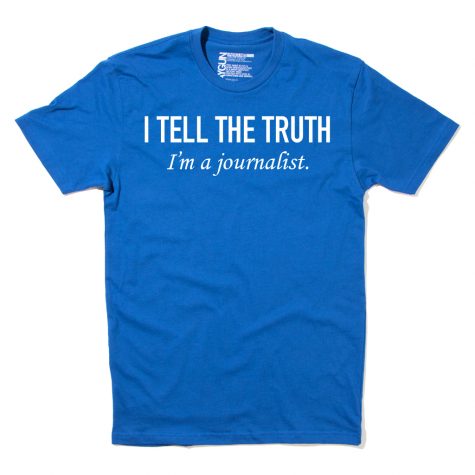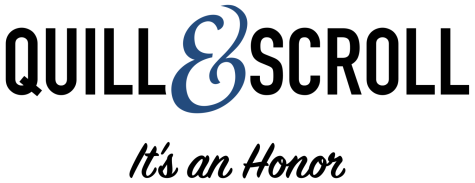The Weekly Scroll
October 21, 2019
News, tips and advice from Quill and Scroll
The Lede
One political investigation finally ends after more than three years
No, it’s not about President Trump, but the woman whom he defeated in the 2016 election.
The U. S. Department of State on Friday released its conclusions regarding former Secretary of State Hillary Clinton’s handling of classified material. The conclusion: Clinton and her staff may have been careless, but they did nothing wrong nor were they deliberately mishandling information.
“While there were some instances of classified information being inappropriately introduced into an unclassified system in furtherance of expedience,” the report said, “by and large, the individuals interviewed were aware of security policies and did their best to implement them in their operations.”
Dynamic Democratic Congressman Elijah Cummings dies at 86
Elijah Cummings, a Democratic U.S. House Representative from Maryland, died at the age of 86 on Oct. 17. In recent years, he’s had a series of health challenges that most can identify with his motorized scootering on the Capitol.
Despite those challenges, Cummings remained a reputable force to be reckoned with and listened to on Capitol Hill. Democrats and Republicans alike came together on social media to remember Cummings as the powerful, respectable man he was—one that was not afraid to use his voice for stricter gun control laws and assistance to those addicted to drugs.
With Cummings gone from the House, it’s imperative that the world recognizes the work he did to maintain government integrity as chairman of the House Committee on Oversight on Reform. It might be his most lasting legacy. That position gave him the power to investigate Mr. Trump and his administration as the impeachment probe was announced earlier this month. Despite his deteriorating health, Cummings signed subpoenas from his bed at John Hopkins Hospital, joining strategy calls with Speaker of the House Nanci Pelosi and other chairmen.
A few words from Democrats and Republicans alike about Elijah Cummings and the legacy he has left behind:
“In the House, Elijah was our North Star,” Speaker Nanci Pelosi said in a statement. “He was a leader of towering character and integrity, whose stirring voice and steadfast values pushed the Congress and country to rise always to a higher purpose.”
It’s An Honor
Official Quill and Scroll video!
Discover the rich history behind Quill and Scroll’s founding principles and organizational practices. Click that play button below to join our journey, understanding how we developed and progressed over the years. From 1926 to today, we are an organization dedicated to honoring quality student journalist work, providing students and their advisers with resources to do that great work and have it recognized.
Video accredited to Roman Slabach from The Daily Iowan.
 “I TELL THE TRUTH” t-shirts available for your staff
“I TELL THE TRUTH” t-shirts available for your staff
Now is the time to order your Quill and Scroll “I TELL THE TRUTH — I’m a journalist” t-shirts. As you know, “Truth” is the first pillar upon which Quill and Scroll was founded in 1926.
Every time we get to 100 t-shirts ordered, we’ll print up a new batch and ship them to you. All profits will go to the Quill and Scroll Scholarship Fund, which benefits Quill and Scroll members who plan to study journalism in college.
Just fill out the form at this link to tell us how many you want in each size. We’re offering a unisex style and a female-fit style. RAYGUN is printing the shirts for us, and you can read about their “USA-made” t-shirts here.
Of course, we’d like every Quill and Scroll member to wear one, but these shirts are good for any journalist.
We will accept only credit card payments, and there’s a per-order charge for that, so order all your t-shirts at one time and save!
Yearbook Excellence Contest closed!
The 2019 Yearbook Excellence Contest is underway, and Quill and Scroll has sent out all entries to their judges. Find out how your work stacks up against those of your peers from schools across the U.S. and Canada in the coming month.
Quill and Scroll on the road

Photo by Luke Stackpoole on Unsplash
Quill and Scroll Executive Director Jeff Browne will again be touring nearby states this fall for their various journalism conferences. Today he’s in Lincoln, Nebraska for the Nation High School Press Association fall convention and is excited to meet with scholastic journalists.
What’s next on this year’s itinerary:
- Oct. 21 in Lincoln, Nebraska for the NHSPA fall convention
- Oct. 24 in Iowa City, Iowa for the IHSJA fall conference
- Nov. 21-23 in Washington, D.C. for the National High School Journalism Convention
Let us know when your state is hosting its conference because we’d love to have a presence there. And if you see Jeff, stop by his table to say “hello.”
What’s Viral?
College newspapers stolen from racks (again)
It seems to happen at least a couple of times a year, college journalists seeing their hard work disappear from distribution racks because a newsmaker in the paper didn’t like the coverage.
This time it’s at Radford University in Virginia, and apparently it’s in response to several stories in the Sept. 18 edition. The mystery remains unsolved.
The typical question that arises from these incidents is “How much value does a free paper have?”
The answer? “A lot of value.
Not only do advertisers expect return on their investment — paying money to have their message published — but students expect their work to be distributed as long as it doesn’t break any laws, libel anyone or invade someone’s privacy.
As a means to deter theft, most “free” publications establish a policy that establishes the first copy of the paper as free and every subsequent copy as having an actual dollar value. That way, if someone steals 100 papers, they owe on every paper but the first, and they can be prosecuted for theft.
Some states have passed laws against the theft of “free” papers, as well.
What are the laws and policies in your school, district and state?
Just a Thought
Transparency vs. Relevance: why investigating social media may be going too far
A short opinion piece by Sylvia Clubb of Q&S
ISU Fan Turns Beer Money Sign into Viral Fundraiser for Children’s Hospital #CyHawk #collegegamedayhttps://t.co/wDzeUezRx6 pic.twitter.com/7I4ETbw2dH
— Justin Surrency (@JustinSurrency) September 17, 2019
Carson King, a student at Iowa State University, recently rose to fame after pledging to give all donations made to his Venmo account to the University of Iowa Stead Family Children’s Hospital – known for “the wave.” The pledge was made after King received national attention for a sign made and featured on ESPN’s College GameDay Sept. 14.
After hitting the $1 million donation mark with the help from Anheuser Busch and Venmo, a feature was to be written on King in The Des Moines Register, a local newspaper.
The paper decided to look into King’s social media history. Upon inspection, a reporter found that King released a racist tweet at age 16 (eight years prior to the event at hand) quoting the popular show “Tosh.0.”
King himself released an apology statement for the tweet, calling it, “an attempt at humor that was offensive and hurtful.” King’s statements made at age 16 caused him to lose part of his partnership with Anheuser Busch, which would have resulted in King receiving a year’s supply worth of custom-made Busch Light’s.
Supporters of King everywhere were in uproar after this event. Videos were posted to social media featuring King supporters throwing away any Busch products in their possession and threatening The Des Moines Register to the point police presence was requested. How could a mistake King made, completely unrelated to the fundraising process or event at hand, come back to affect him eight years later?
This event poses an ethical dilemma to journalists everywhere: how are we to be transparent to the public, yet remain relevant to the story at hand?
King’s tweet had nothing to do with sick kids. Was it wrong: yes. Did the exposure of that tweet have the possibility of harming the fundraising campaign: yes. Luckily, nothing but ample support has been provided to King since the statement was released to the public. However, the situation could have been drastically different.
As journalists, it is our job to provide all of the facts to the public — good or bad. Those lines get blurred when it comes to good people making bad decisions. But part of our job as journalists is to determine what is most pertinent to our story. How do we decide what is more important to the public: transparency or relevance?
In King’s case, he apologized for the statements he made as a 16-year-old kid before the information was released by the reporter. His actions over the past eight years do not reflect the tweet he made with his friends at 16; he’s raised more than $1.5 million dollars for a rivalry school’s children’s hospital. He continues to take full responsibility for his actions and is still receiving donations for the children’s hospital in his name. The reporter who originally found the tweets, however, was fired due to the presence of racist comments on his own personal Twitter. The investigation came full circle and ended up biting the reporter worse than King.
If King’s Twitter would never have been investigated, King would still receive his year supply of Busch Light, and the reporter (most likely) would not have been fired.
So, I will leave you with this my fellow journalists: where is the line drawn? Is it based off age of comments, age of the propagator, the situation? Or is it simply about making a mistake, once in your life?
